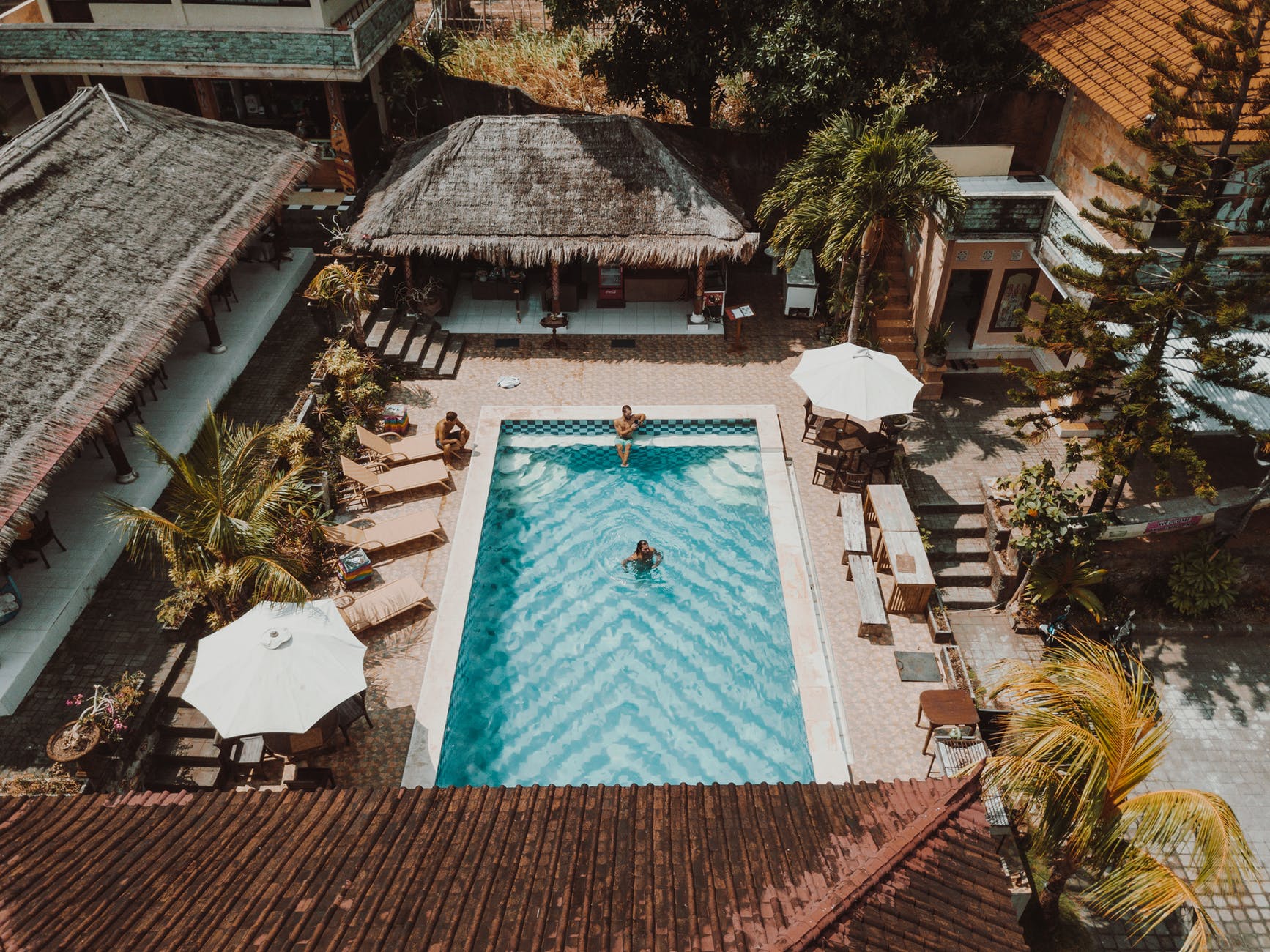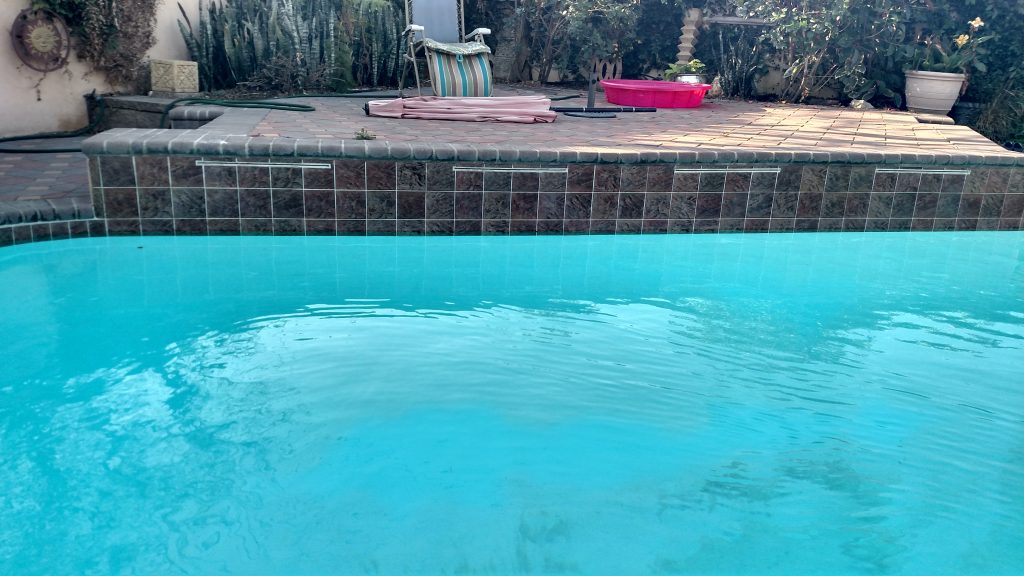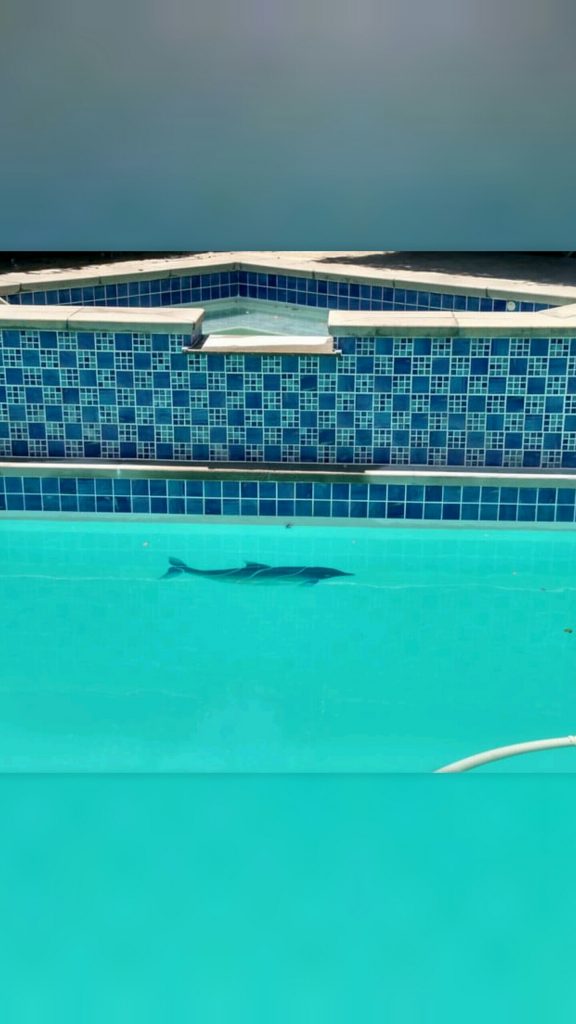Owning a swimming pool during the summer months is awesome. At least, as long as it is clean and healthy. To make the pleasure last, you have to maintain it. In this guide, we will show you what you need to do regarding the maintenance of your swimming pool, its water, and the filtration system.

Pool maintenance
Through regular maintenance of your pool, you can prolong its life and the life of its equipment. And when we talk about maintenance, it is mostly the simple routine cleaning and maintenance done regularly that means the most for the swimming pool’s health.
It is advisable to clean the waterline of all impurities at least once a week. A tedious job, and sometimes long depending on the size of the pool, but effective in ensuring the cleanliness of the pool. To do this, you can use a specific product, an anti-lime product or a degreaser, and rub with a sponge.
It is recommended to use a vacuum cleaning broom or a swimming pool robot to clean the bottom of the pool, at least once a week.
You must regularly empty the baskets of the skimmers, otherwise known as surface skimmers, to avoid their clogging and clogging of the walls.
As a general rule, it is advisable to monitor the water level. The surface of the water should be two-thirds of the skimmer. Underneath, there is a risk of air intake and damage to the pump. Above, the cleaning of the water turns out to be imperfect.
Water Maintenance
Cleaning your pool also means maintaining the water. It must be clear, balanced, disinfected, and disinfectant.
You can very simply clean the surface of the water using a dip net to remove large debris. To be repeated at least once a week.
The quality of the water also depends on the use of chlorinated or anti-algae products. To do this, you have six options: chlorine, bromine, active oxygen, PHMB, ultraviolet, and salt electrolysis.
It is advisable to regularly analyze the pool water, and more precisely the level of pH and disinfectant present in the water. Then you must correct the water accordingly, either by adding a cleaning product or by reducing its quantity.
Note: a pH below 7 can be harmful to the skin.

Maintenance of the Filtration System
The quality of the water depends on the filtration system. To check the filtration system, you will need to check the good simmering of the water at the outlet of the delivery nozzles: a sign of good water circulation in the filtration system.
Check the clogging of the filter. To clean a cartridge filter, simply remove the cartridge and rinse it with a water jet. To clean the other filters, backwash systems exist.
Regular Maintenance is a Prerequisite for Quality Swimming Pool Water
To have quality bathing water and not to resort to shock treatments, it is preferable to maintain your swimming pool regularly.
The pool water should be pure, clear, and the pH should be neutral; slightly basic water is however accepted – the ideal rate of 7.4. To avoid any imbalance of your water source of green water, cloudy water, and the appearance of water lines, the maintenance of swimming pool water is mandatory.
This maintenance concerns the use of a swimming pool disinfectant, the occasional application of products to maintain the pH level stable as well as the filtration of the water. Inflatable pools, tubular pools, above-ground pools, and in-ground pools are subject to regular and periodic maintenance: all pool water must be maintained and analyzed regularly using water control kits.
The analysis of swimming pool water measures the level of disinfectant, the pH, the stabilizer, and the alkalinity. As a reminder, water with a pH (potential of hydrogen) greater than 7 is said to be basic and acidic if it is less than 7.

The Risks and Consequences of an Unmaintained Swimming Pool
It is imperative to clean your swimming pool for several reasons:
- Benefit from clear water and preserve its quality from any external pollution;
- Guard against any premature wear of coatings such as liner, concrete or tiles;
- Maintain water that is always clean, healthy, and suitable for swimming.
Cleaning your pool after winter is also essential. Above ground pool, in-ground pool, wood, or plastic, all need cleaning.
A swimming pool enclosure, a winter cover, or a pool cover limits the cleaning of the pool, however, the pool and the liner are not immune to the appearance of a water line and suicidal insects!
Protecting your swimming pool from the elements is one thing, believing that this eliminates the need for cleaning with a high-pressure washer is a little too optimistic!
The 5 Steps for Cleaning an Above-ground or in-ground Swimming Pool
You need different equipment to ensure periodic and daily cleaning of your swimming pool. Cleaning your pool naturally is recommended, and cleaning your pool with acid is strongly discouraged. Hydrochloric acid is not to be used in a swimming pool, even in skimmers!

Here is How to Clean an Above-ground or In-ground Pool in 5 Steps:
- Clean the surface pool water of any external pollution using a dip net.
- Suck up dirt from the bottom of the pool with a vacuum broom or with an automatic or semi-automatic pool robot, more practical because it is autonomous.
- Use a water line brush, a kind of sponge to gently rub the waterline, formed by residues marking the limit of water on the liner (be careful not to damage it). The use of special coating/liner cleaning products makes the task easier. The walls and the bottom can also be cleaned with a brush.
- Remove the residues present and pass a sponge on the skimmers, filters which are also to be cleaned. The skimmers clean the surface of the water by skimming them, the impurities sucked up are then sent to the pump which, after filtration, pushes the water back into the basin.
- Wash cover, curtain, tarpaulin, pool enclosure, and coping; the use of a high-pressure cleaner facilitates the removal of dirt. The use of a low abrasive product is necessary to preserve the equipment.
Pool maintenance must be regular to be effective. If you are not there or do not have the energy necessary to maintain your pool, contact a pool specialist near you. Most of them provide maintenance contracts. And when your pool tiles and wall get overgrown with lime deposits and calcium deposits, call the Calcium killers to help you get rid of those ugly white deposits on your pool tiles.



